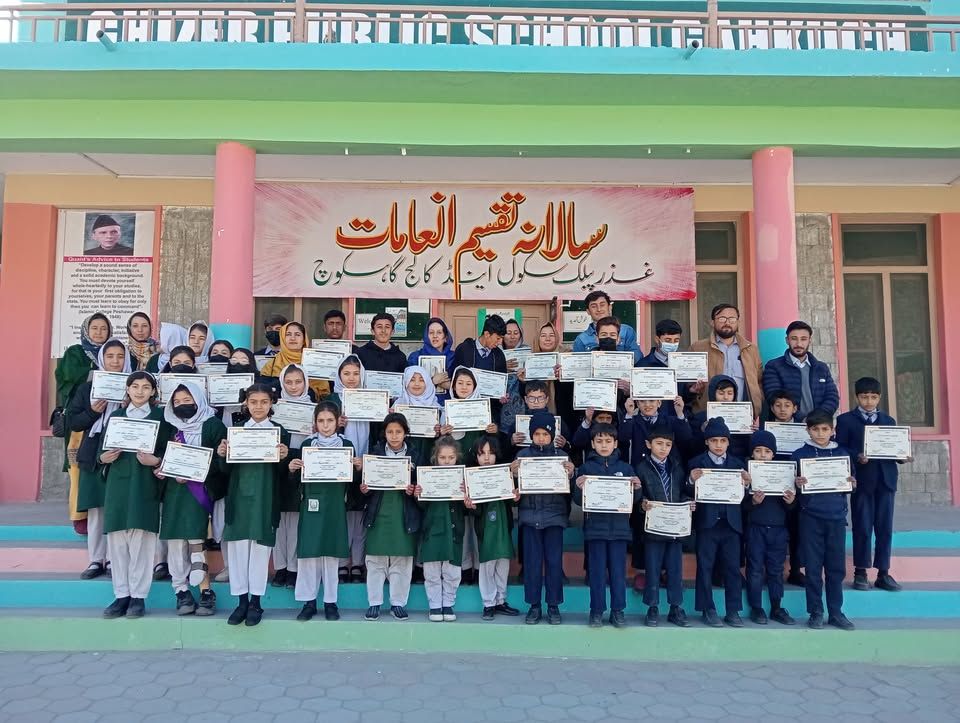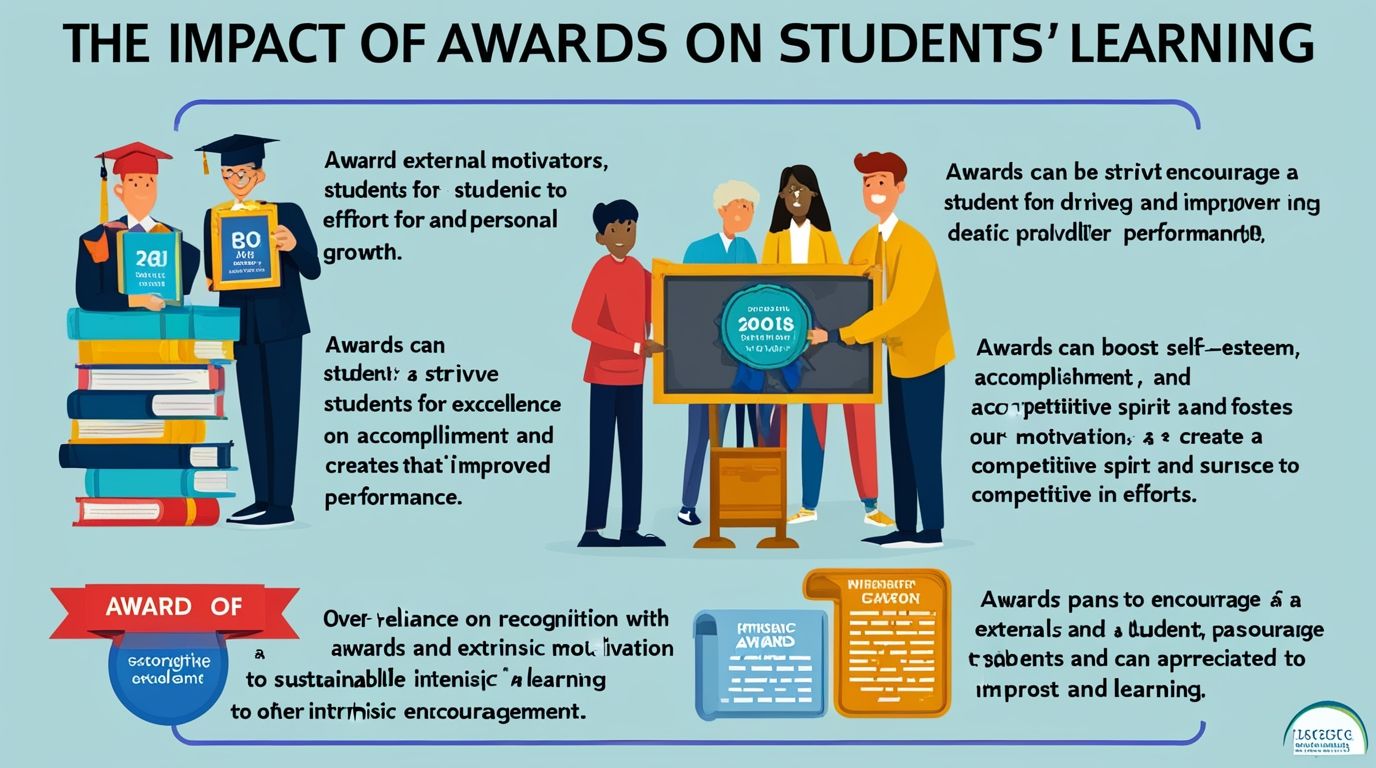The Impact of Awards on Students’ Learning, Awards have long been a fundamental aspect of educational systems worldwide. They serve as a tool to recognize and reward achievement, motivate students, and encourage positive behavior. However, the role of awards in shaping students’ learning experiences is multifaceted, encompassing psychological, social, and academic dimensions. This article delves into how awards impact students’ learning, discussing their benefits, potential drawbacks, and strategies for their effective implementation.
The Psychological Impact of Awards
One of the primary effects of awards on students is psychological. Awards act as extrinsic motivators, providing tangible recognition for accomplishments. This recognition can boost self-esteem and create a sense of accomplishment, particularly for students who may struggle in other areas. For example, receiving an award for academic excellence can reinforce a student’s belief in their abilities, fostering a positive self-image.
Moreover, awards can enhance students’ intrinsic motivation when linked to meaningful achievements. Students often strive to replicate the behaviors and efforts that led to their recognition. This can lead to the development of a growth mindset, where students view challenges as opportunities to improve rather than as obstacles to avoid.
Encouraging Academic Achievement
Awards are instrumental in promoting academic excellence. When students know their efforts will be rewarded, they are more likely to set ambitious goals and dedicate themselves to achieving them. For instance, awards for high grades or consistent performance can encourage students to develop better study habits, improve time management, and engage more actively in their learning processes.
In competitive environments, awards also foster a spirit of healthy rivalry. Students may push themselves harder to outperform their peers, raising the overall standard of achievement. Schools that implement award programs often witness improved academic performance across the board as students aim to earn recognition.
Social and Behavioral Impacts
Beyond academics, awards play a significant role in shaping students’ social behaviors and attitudes. Recognizing students for qualities like leadership, teamwork, or community service reinforces the importance of these values. For example, an award for volunteering can encourage students to engage more actively in community initiatives, fostering a sense of responsibility and empathy.
Additionally, awards can promote inclusivity and reduce feelings of alienation among students. When diverse achievements are celebrated—such as creativity, sportsmanship, or perseverance—more students feel valued and included. This broadens the scope of recognition beyond academics, ensuring that students with varied talents are acknowledged.
Potential Drawbacks of Awards
While awards have numerous benefits, they also come with potential downsides. One significant concern is the over-reliance on extrinsic motivation. If students focus solely on earning awards, they may lose sight of the intrinsic value of learning. For instance, a student might prioritize subjects or activities with tangible rewards over those that align with their interests or long-term goals.
Another issue is the potential for unhealthy competition. In some cases, the pursuit of awards can create stress, anxiety, and even resentment among students. High-performing students might feel undue pressure to maintain their status, while others may become discouraged if they perceive the awards as unattainable.
Moreover, awards can inadvertently lead to favoritism or perceived bias. If students believe awards are not distributed fairly, it can erode trust and diminish their motivation. Ensuring transparency and equity in award criteria is essential to mitigate these risks.

Strategies for Effective Use of Awards
To maximize the positive impact of awards on students’ learning, educators and institutions must adopt thoughtful strategies. Here are some recommendations:
- Diversify Award Categories: Recognizing achievements in multiple areas—academic, artistic, athletic, and social—ensures inclusivity and caters to diverse student strengths. For instance, awards for creativity or problem-solving can encourage innovation and critical thinking.
- Set Clear and Fair Criteria: Establishing transparent criteria for awards helps students understand what is expected of them and reduces perceptions of favoritism. Teachers should communicate these criteria clearly and consistently.
- Focus on Effort and Growth: While celebrating achievements is important, emphasizing effort and progress can be more impactful. Awards for improvement, perseverance, or overcoming challenges highlight the importance of resilience and hard work.
- Combine Extrinsic and Intrinsic Motivation: Awards should complement, not replace, intrinsic motivation. Educators can achieve this by linking awards to meaningful experiences and providing opportunities for students to reflect on their learning journeys.
- Promote Collaboration: Introducing group awards for teamwork or collaborative projects can shift the focus from individual competition to collective achievement. This approach fosters cooperation and strengthens social bonds among students.
- Regularly Evaluate Award Programs: Schools should periodically review their award systems to ensure they remain relevant, fair, and effective. Gathering feedback from students, parents, and teachers can provide valuable insights for improvement.
Case Studies and Examples
Many schools have successfully used awards to enhance students’ learning experiences. For instance, a high school in California introduced an “Excellence in Character” award to recognize students who demonstrated kindness, integrity, and respect. This initiative not only improved the school’s culture but also encouraged students to prioritize ethical behavior.
Similarly, an elementary school in Japan implemented a “Progress Awards” program, where students were recognized for their improvement in various subjects, regardless of their starting point. This approach motivated all students, particularly those who struggled academically, to work harder and celebrate their progress.
Conclusion
Awards have a profound impact on students’ learning, influencing their motivation, behavior, and academic performance. When implemented thoughtfully, awards can serve as powerful tools to inspire excellence, foster inclusivity, and promote personal growth. However, it is crucial to balance extrinsic rewards with intrinsic motivation and ensure that award systems are equitable and transparent.
By recognizing diverse achievements and emphasizing effort, schools can create a supportive environment where every student feels valued and empowered to reach their full potential. In doing so, awards can transcend mere recognition, becoming catalysts for lifelong learning and success.

20 thoughts on “The Impact of Awards on Students’ Learning”
Comments are closed.